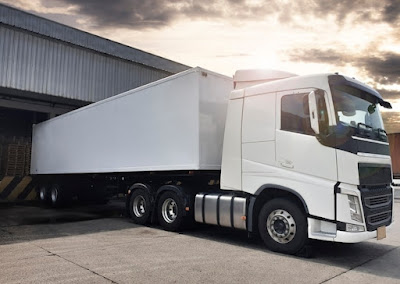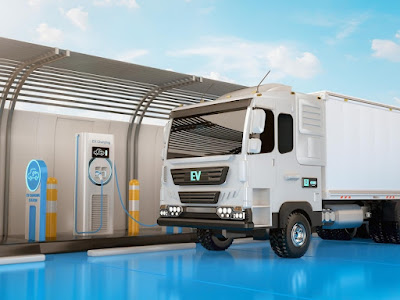Electric Vehicles in Logistics: A Sustainable Future for Travel?
Introduction
The logistics industry plays a vital role in the global economy, ensuring the smooth movement of goods from manufacturers to consumers. However, this industry is also a significant contributor to greenhouse gas emissions and air pollution due to the reliance on traditional fossil fuel-powered vehicles. In recent years, there has been a growing awareness of the need for sustainable practices in logistics, and electric vehicles (EVs) have emerged as a promising solution to reduce the environmental impact of this sector. In this blog, we will explore the potential of electric vehicles in logistics and their role in creating a sustainable future for travel.
The Environmental Challenge
Traditional logistics operations heavily rely on diesel and gasoline-powered trucks and vans. These vehicles emit carbon dioxide (CO2), nitrogen oxides (NOx), and particulate matter, contributing to air pollution and climate change. The transportation sector is responsible for a significant portion of global greenhouse gas emissions, making it a critical area for emissions reduction.
Electric Vehicles: A Green Alternative
Electric vehicles, which run on electricity stored in batteries, have gained traction as an eco-friendly alternative to conventional vehicles. Here are several ways in which EVs are transforming the logistics industry:
1. Reduced Emissions: The most apparent benefit of electric vehicles is the reduction in greenhouse gas emissions. EVs produce zero tailpipe emissions, leading to cleaner air and a smaller carbon footprint.
2. Lower Operating Costs: While the initial cost of electric vehicles may be higher than traditional vehicles, they often have lower operating and maintenance costs. Electricity is generally cheaper than gasoline or diesel, and EVs have fewer moving parts, reducing maintenance needs.
3. Quiet Operation: Electric vehicles are quieter than their combustion engine counterparts, resulting in reduced noise pollution in urban areas, especially during nighttime deliveries.
4. Incentives and Subsidies: Many governments offer incentives and subsidies for the adoption of electric vehicles. These incentives can significantly offset the upfront costs and encourage businesses to transition to EVs.
5. Efficiency: Electric motors are highly efficient, converting a higher percentage of electrical energy into vehicle propulsion compared to internal combustion engines.
Challenges and Solutions
While electric vehicles offer numerous advantages, they also face challenges that need to be addressed for widespread adoption in the logistics industry:
1. Charging Infrastructure: Developing a robust charging infrastructure is essential for the success of electric logistics. Businesses need access to charging stations to keep their EV fleets operational.
2. Range Anxiety: Overcoming range anxiety, the fear of running out of battery power before reaching a destination, is crucial. Advances in battery technology are extending the range of electric vehicles, making them more suitable for long-haul logistics.
3. Initial Costs: Although operating costs are lower, the initial purchase price of electric vehicles can be higher. Businesses must weigh this against long-term savings and available incentives.
4. Battery Recycling: Proper disposal and recycling of EV batteries at the end of their lifecycle need to be addressed to minimize environmental impact.
The Road Ahead: A Glimpse into the Future
In spite of the challenges, the prospects for electric vehicles (EVs) in logistics are decidedly optimistic. As technology advances, we can envision a series of transformative developments that will reshape the electric logistics landscape.
Revolutionary Battery Technology:
Advances in battery technology are on the horizon, promising EVs with remarkable enhancements. These improvements will include substantially extended ranges on a single charge, making EVs more versatile and suitable for long-haul logistics. Faster charging times will further enhance operational efficiency.
Evolving Charging Infrastructure:
Governments, private enterprises, and charging network providers are actively investing in expanding the charging infrastructure. This expansion ensures a well-distributed and accessible charging network, eliminating range anxiety and enabling more confident route planning. It extends into rural and remote regions, facilitating electric vehicle adoption across diverse geographical landscapes.
Pioneering Last-Mile Delivery Solutions:
Innovations in last-mile delivery are particularly exciting, as they address one of the most intricate aspects of logistics. Electric delivery vans and e-cargo bikes are gaining widespread acceptance in urban logistics. These nimble and eco-friendly vehicles reduce traffic congestion, cut emissions, and ensure timely deliveries. Tailored urban solutions, such as micro-depots, optimized delivery schedules, and sustainable urban logistics hubs, are becoming commonplace.
Smart Fleet Management Integration:
The integration of smart technology into fleet management is a game-changer for electric vehicle logistics. Fleet management software, enriched with real-time data and predictive analytics, optimizes delivery routes. It factors in elements like traffic conditions and charging station locations to minimize energy consumption and enhance delivery efficiency. Telematics systems continuously monitor the health and usage of EV batteries, enabling informed decisions regarding battery maintenance and replacement. These practices lead to cost reductions through energy savings and efficient maintenance, making electric vehicle adoption economically compelling for logistics companies.
Conclusion
Electric vehicles have the potential to revolutionize the logistics industry, offering a cleaner and more sustainable mode of transportation. As environmental concerns grow and governments implement stricter emissions regulations, the adoption of electric vehicles in logistics will likely accelerate. While challenges exist, ongoing technological advancements and a commitment to sustainability ensure that electric vehicles are on the road to a greener future for logistics and travel.
Incorporating electric vehicles into logistics is not only an environmentally responsible choice but also a strategic one. As consumers and governments increasingly prioritize sustainability, businesses that embrace electric logistics stand to benefit not only in terms of reduced operational costs but also in enhanced brand reputation and competitiveness. It's clear that electric vehicles are driving the logistics industry toward a more sustainable and prosperous future, one delivery at a time, with a focus on vehicle attachment.



thank you for this important information. use of electric vehicles in logistics is a turning point for the world. the good thing is that electric vehicles are environment friendly they safe our environment from pollution. few time ago I met with Shipping companies in karachi they took the initiative and started replacing their cargo vehicles with electric vehicles.
ReplyDelete